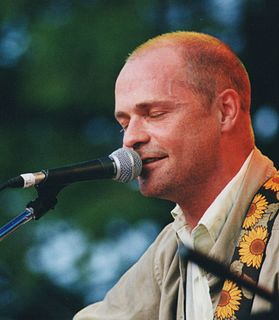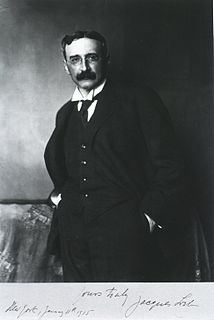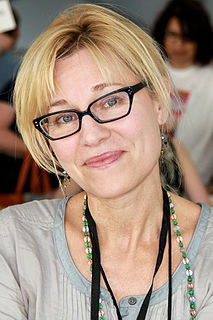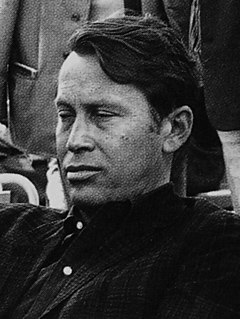A Quote by Nicolas Boileau-Despreaux
It is in vain a daring author thinks of attaining to the heights of Parnassus if he does not feel the secret influence of heaven and if his natal star has not formed him to be a poet.
Related Quotes
The citizen who thinks he sees that the commonwealth's political clothes are worn out, and yet holds his peace and does not agitate for a new suit, is disloyal, he is a traitor. That he may be the only one who thinks he sees this decay, does not excuse him: it is his duty to agitate anyway, and it is the duty of others to vote him down if they do not see the matter as he does.
There is no such thing as a good influence. Because to influence a person is to give him one's own soul. He does not think his natural thoughts, or burn with his natural passions. His virtures are not real to him. His sins, if there are such thing as sins, are borrowed. He becomes an echo of someone else's music, an actor of a part that has not been written for him.
So, then, the best of the historian is subject to the poet; for whatsoever action or faction, whatsoever counsel, policy, or war-stratagem the historian is bound to recite, that may the poet, if he list, with his imitation make his own, beautifying it both for further teaching and more delighting, as it pleaseth him; having all, from Dante’s Heaven to his Hell, under the authority of his pen.
Man is a megalomaniac among animals-if he sees mountains he will try to imitate them by pyramids, and if he sees some grand process like evolution, and thinks it would be at all possible for him to be in on that game, he would irreverently have to have his whack at that too. That daring megalomania of his-has it not brought him to his present place?
If idioms are more to be born than to be selected, then the things of life and human nature that a man has grown up with--(not that one man's experience is better than another's, but that it is 'his.')--may give him something better in his substance and manner than an over-long period of superimposed idiomatic education which quite likely doesn't fit his constitution. My father used to say, 'If a poet knows more about a horse than he does about heaven, he might better stick to the horse, and some day the horse may carry him into heaven'
The patient man is merry indeed.... The jailers that watch him are but his pages of honour, and his very dungeon but the lower side of the vault of heaven. He kisseth the wheel that must kill him; and thinks the stairs of the scaffold of his martyrdom but so many degrees of his ascent to glory. The tormentors are weary of him. the beholders have pitty on him, all men wonder at him; and while he seems below all men, below himself, he is above nature. He hath so overcome hlmself that nothing can conquer him.
The author with the greatest influence on me is my friend Stephen Harrigan, who critiques everything I write before I even bother to show it to my agent or editor. He's a truly great writer - author of Gates of the Alamo and other books you might know of, and his instincts about what's working in a story, and what's not, are just about perfect. My books would be very different without his influence.
The Prophet, peace and blessings be upon him, said: "My Companions are as stars. Whomsoever of them you follow, you will be rightly guided." When a man looks at a star, and finds his way by it, the star does not speak any word to that man. Yet, by merely looking at the star, the man knows the road from roadlessness and reaches his goal.




































